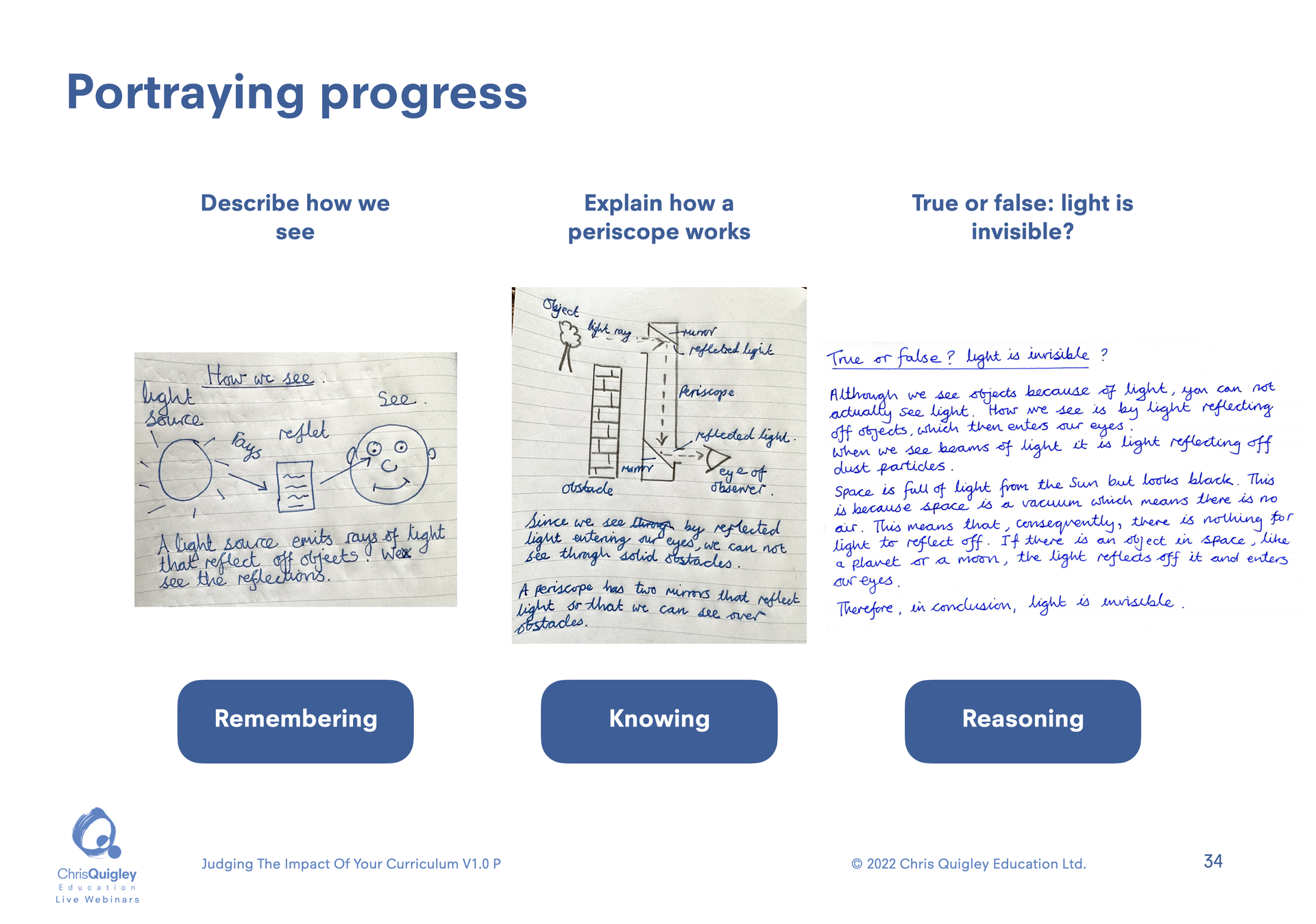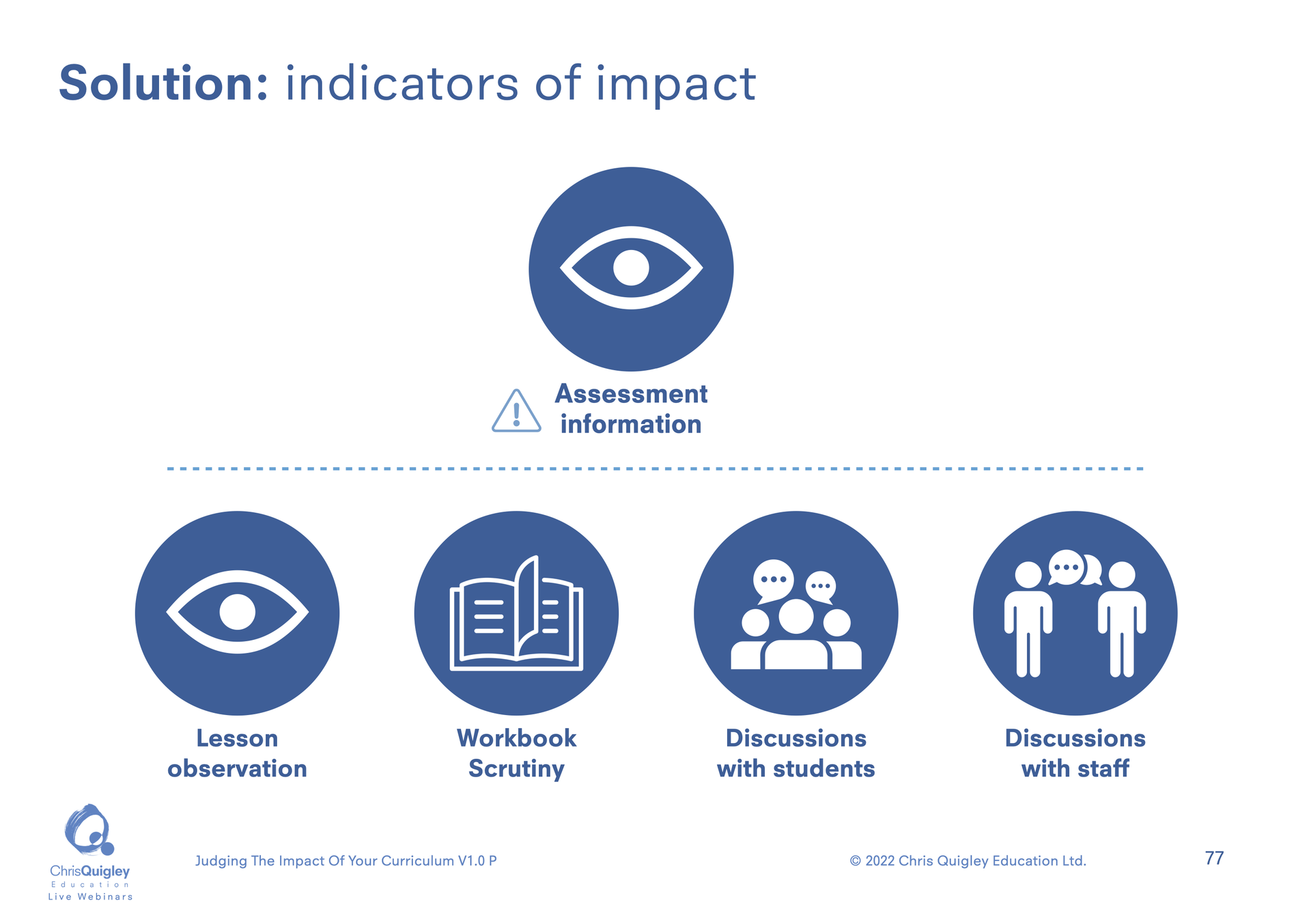
How effective is your curriculum?
How do you know?
These two questions may be answered by thinking about the three versions of your curriculum:
- The intended curriculum - your plans and schemes of work
- The enacted curriculum - the curriculum that is taught
- The learnt curriculum - the curriculum knowledge that students remember.
The intended curriculum has three elements:
- The general intent of your curriculum
- The specific knowledge students will acquire
- The progress that is expected of students.
To judge curriculum impact, it is essential to be as specific as possible in specifying the knowledge students should acquire; otherwise, it will be unclear whether it has been remembered. Broad statements are less valuable than specific statements: 'Classify flowering plants as wild or garden plants' - a broad statement - is less valuable than 'A bluebell is a wild flowering plant.' - a specific statement. Similarly, to judge whether students are making suitable progress, it is essential to be clear in defining the intended improvement. This is better done qualitatively than quantitatively. In other words, ask, 'What does making progress in this subject look like?' POP Tasks (Portrayal of Progress) Tasks are a helpful way to qualify progress. Below is an example of POP Tasks that show improvement from remembering to knowing and reasoning:

To judge the enacted curriculum first, monitor the coverage of the intended curriculum. If it is covered as specified, then students are more likely than not to reach its expectations. Secondly, evaluate the teaching of the intended curriculum. If teachers use thoughtfully applied evidence-informed methods, students are more likely than not to meet curriculum expectations. Because learning is a change to long-term memory, it is impossible to know in the short term whether they have learnt anything. However, evidence-informed effective practices are most likely to work. A related aspect is the appropriateness of tasks students undertake in lessons. Based on the principle 'we remember what we think', it is essential that tasks provoke suitable thinking about the curriculum knowledge that should be remembered.
The learnt curriculum may only be judged in the longer term, as learning changes long-term memory. However, indicators of learning are valuable signposts that your curriculum is having its intended impact. Below are five areas in which such indicators may be discovered:

Three of our courses provide step-by-step walkthroughs to learn about each of these indicators, both available as Live Webinars and On-Demand.
Assessment across the Wider Curriculum (2-day course)
Judging the Impact of Your Curriculum.
Judging the Quality of Education through Lesson Observations

.png)


